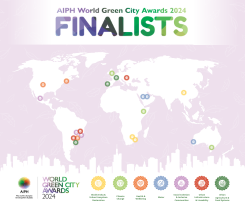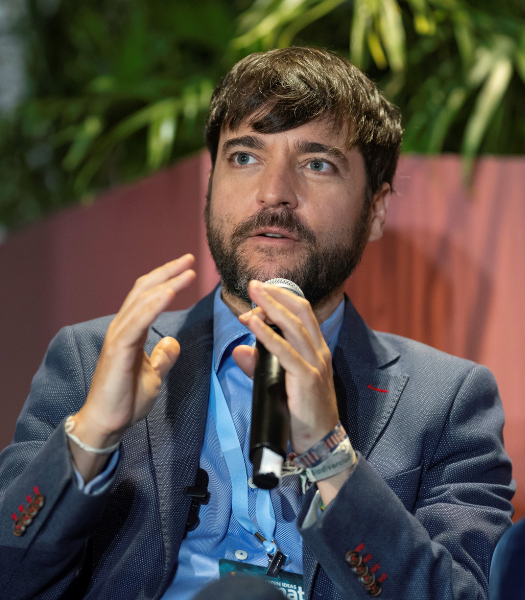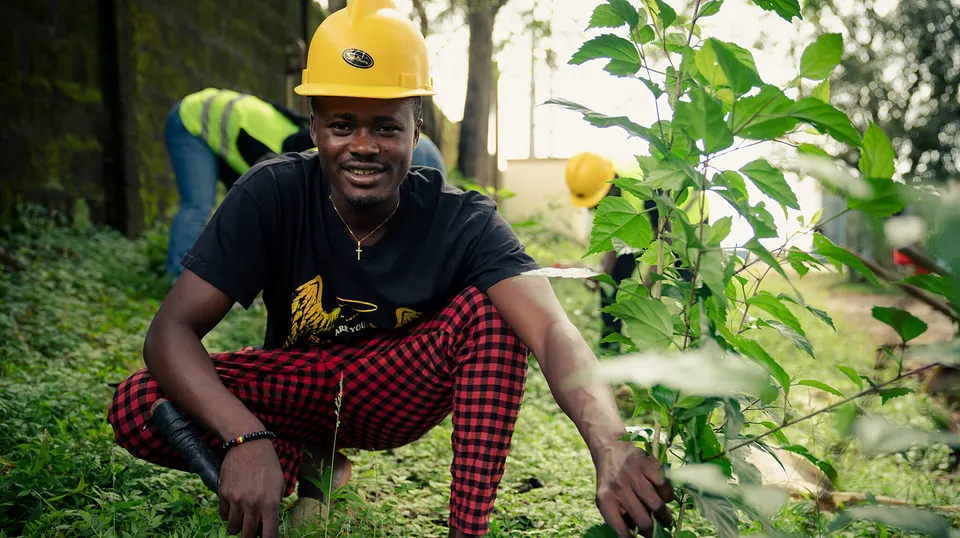
Photo: Michael Duff / AP Images for C40
Ten of the world’s leading city climate projects
27 October 2022
by Sarah Wray
The ten winners of this year’s C40 Cities Bloomberg Philanthropies Awards have been highlighted as urban climate action pioneers. The selected projects include efforts to curb gas consumption amid the energy crisis and work to make school meals more sustainable.
The winning projects were narrowed down from 70 entries. This year’s theme was United in Action, including categories related to: accelerating immediate action in critical sectors; cleaner air; boosting climate resilience; innovation; and building a climate movement.
Sadiq Khan, Chair of C40 Cities and Mayor of London, said: “These cities represent some of the best projects from around the world and their commitment to local communities and the planet is impressive.
“The focus on immediate climate action illustrates the power of cities to be doers, not delayers, setting a new level of ambition that I hope will inspire leaders around the world to invest in a greener future.”
Michael R. Bloomberg, C40 Board President, UN Special Envoy on Climate Ambition and Solutions, former Mayor of New York City and Founder of Bloomberg Philanthropies, said the awards “showcase the best of local climate leadership, demonstrating to national governments and the world what’s possible ahead of COP27.”
Meet the cities
Beijing: Phasing out coal in heating systems
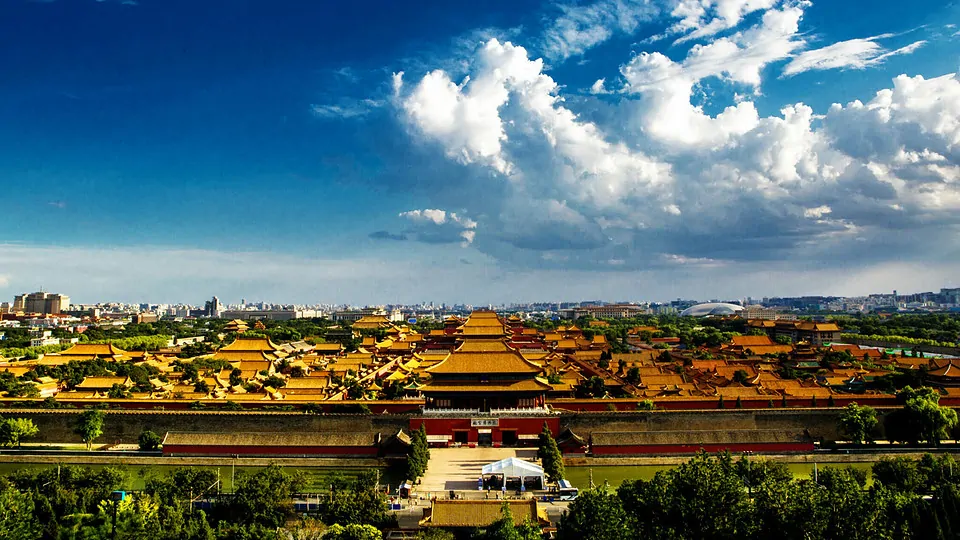
Since 2016, Beijing has supported nearly a million homes and more than 6,300 boilers to shift away from coal-fired heating to cleaner alternatives, with subsidies available for more vulnerable groups such as rural families.
The proportion of coal in the city’s total energy consumption has dropped to around 1.5 percent, compared with 13.7 percent in 2015, and coal has been largely phased out from Beijing’s heating system, according to the award summary.
The city reports that the annual average PM2.5 pollution concentration has dropped by 59 percent from 2015 levels, with “heavy pollution” days also falling from 46 to eight days annually.
Pune: Rapid electric bus deployment
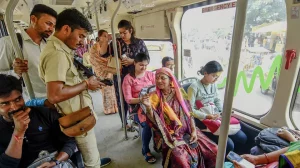
In the Indian city of Pune, levels of particulate matter are ten times higher than the World Health Organization deems safe. As part of efforts to tackle this, Pune is electrifying its public transport system.
Since 2019, 15 percent of the city’s buses have been electrified and used by 1.2 million passengers. The city is now deploying a further 244 e-buses, followed by 300 mini e-buses later in 2023. This will take Pune’s total e-buses to 950, accounting for 40 percent of the city’s fleet.
Swapping diesel and petrol vehicles for electric buses is forecast to save ₹656 crores (US$88 million) throughout the fleet’s lifetime, with emissions savings equivalent to taking over 3,000 petrol and diesel-fuelled cars off the roads.
Addis Ababa: Decentralised composting and recycling
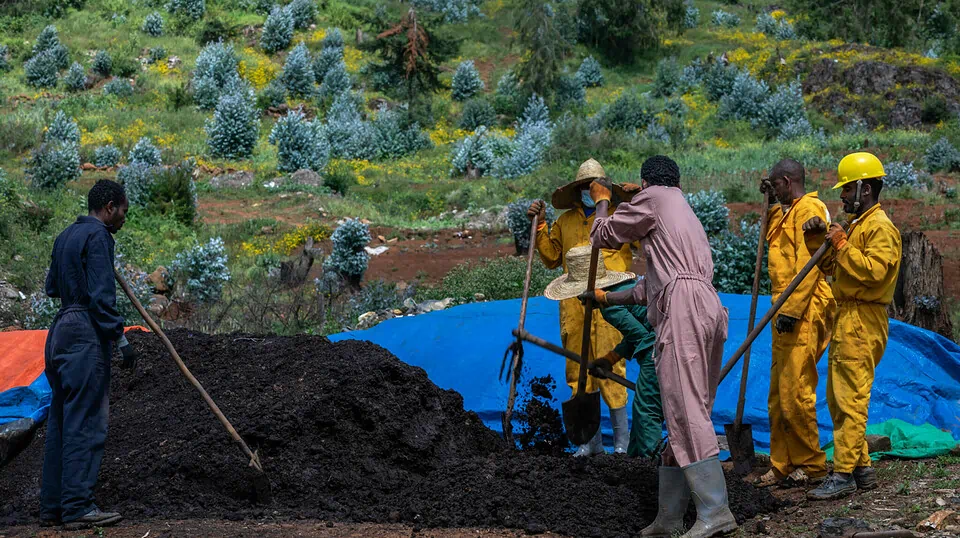
In Ethiopia, ineffective waste management threatens the environment and the health of local communities. Rubbish spills into local rivers, unmanaged waste releases harmful emissions into the atmosphere, and landfill mountains are prone to deadly landslides.
Through a ten-year composting plan, working with community-led micro-businesses, Addis Ababa is increasing waste collection frequency, rolling out more community food bins and composting facilities, and improving recycling, while creating jobs for low-income groups, including women.
Within six months, 400 tonnes of natural compost and 31,000 tonnes of recycled materials have been generated. The compost recovers nutrients from food waste, which enhances soil productivity for more sustainable local food production and captures carbon from the atmosphere.
As well as cleaner air and reduced risk of respiratory diseases, the city expects a three percent reduction in total emissions.
Amsterdam: Cutting gas consumption

Amsterdam is working to reduce the city’s gas consumption by 15 percent by the end of the year amid the energy crisis which has been exacerbated by the war in Ukraine.
Following brainstorming with 150 stakeholders, including businesses, churches and Schipol airport management, low-income residents are being offered home insulation solutions, energy coaching services and advice.
Other actions include: reducing the base temperatures of public buildings; encouraging offices in the Central Business District to switch lights off at night; and finding and fixing energy leaks at business parks.
So far, the city has achieved a 9.9 percent reduction in gas usage “in a matter of months”.
Dhaka North: Expanding green spaces
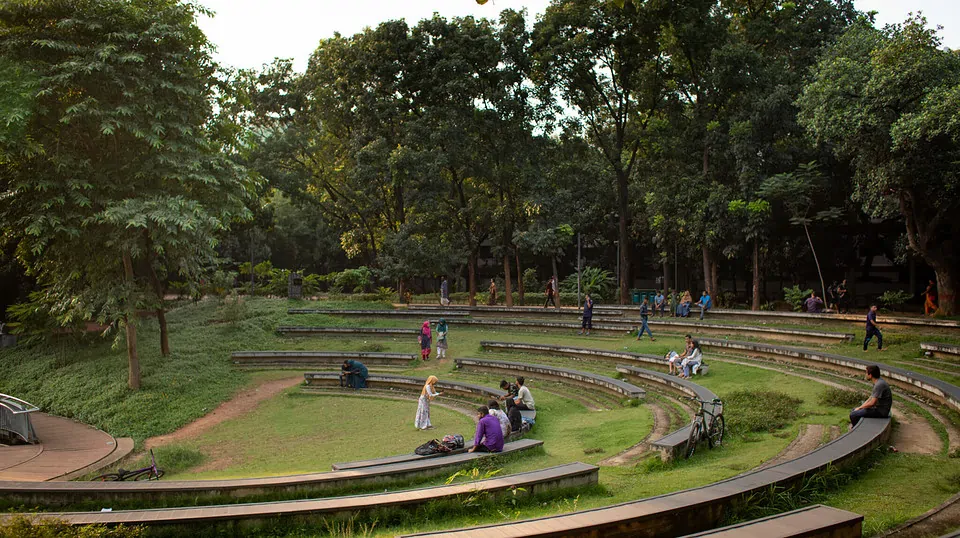
Dhaka North in Bangladesh is one of the most densely populated cities on earth and also sees an estimated 2,000 new arrivals every day, a quarter of whom are climate migrants fleeing from floods and droughts in rural areas.
To manage the impacts of urban growth, Dhaka North is increasing urban green space by 70 percent and public toilet access by 80 percent. The city is also developing 16 parks, three playgrounds, rainwater harvesting facilities, and improving pavements and cycling routes.
The green spaces aim to increase climate resilience to heat waves and flooding, reduce greenhouse emissions, and create areas that are equitable and accessible. It is estimated that 60 percent of the project beneficiaries will be women, children and low-income residents.
By the end of 2022, Dhaka North aims to provide green spaces that are accessible within a 15-minute walk for 20 percent of the population.
Guadalajara: Enhancing local water resilience
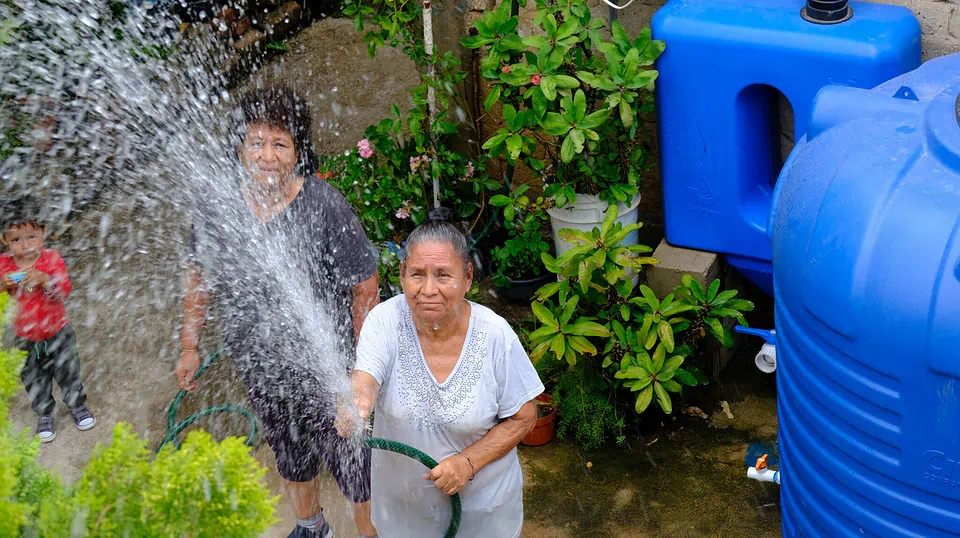
In 2021, Jalisco experienced a severe drought, leading to low water supplies. In response, the Metropolitan Area of Guadalajara launched the Nidos de Lluvia (Rain Nests) programme.
The programme aims to improve water access by installing rainwater harvesting systems in the most water-vulnerable neighbourhoods. The harvesting system collects rainwater and channels it through filters for cleaning and storage. Families and schools in areas most affected by drought can apply to have the system installed to ensure access to safe and healthy drinking water in times of drought.
Sixteen million litres of water were collected via 600 harvesting systems, providing water to over 2,000 residents in 2021. Metro Guadalajara estimates that by 2024, nearly 60,000 people will have improved water security, reducing the rates of critical water vulnerability by 67 percent.
Freetown: Tree Town

In 2017, a deadly landslide killed more than 1,000 people in Freetown, Sierra Leone and left many more missing. The “Freetown the TreeTown” initiative aims to reduce landslide and flooding risk through increasing green space and vegetation cover.
Working with the local community, the city will plant, grow and track a million trees and restore 3,000 hectares of land, sequestering approximately 69,000 tonnes of CO2.
The initiative uses low-cost digital technology for tree-tracking. It also creates new jobs for women and young people in green sectors, providing alternatives to working in industries like mining.
With a growth cycle of three to five years, each tree is assigned a unique identification code that can be transformed into ‘impact tokens’. The tokens can be bought, sold and traded for carbon offsets.
Since 2020, Freetown has planted more than 560,000 trees in climate-vulnerable areas, covering 578 hectares of urban land and benefiting over 300 communities. The initiative has created over 1,200 jobs, 80 percent of which have gone to young people, including 44 percent to women.
An additional four million trees will be planted over the next ten years using the community-growing approach.
São Paulo: Sustainable School Menus
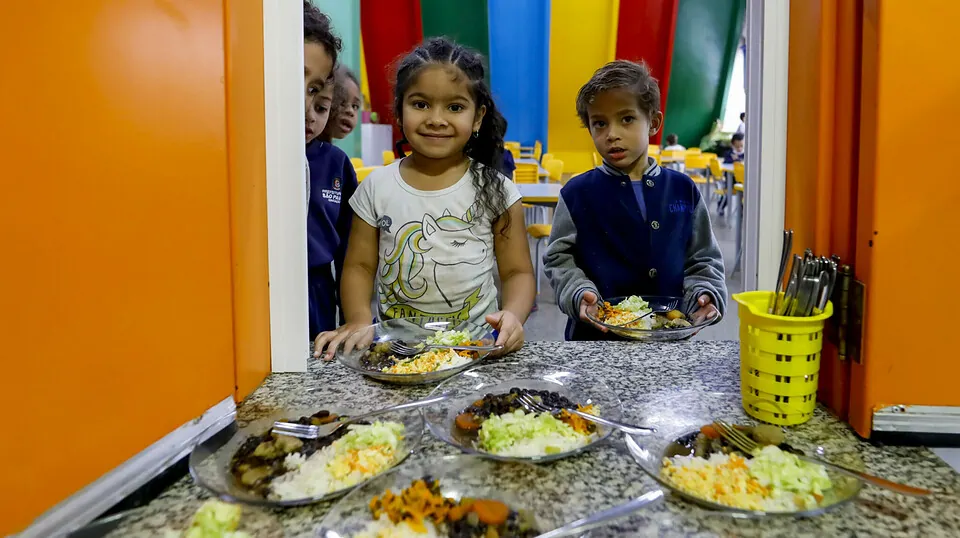
In São Paulo, more than 305 tonnes of meat are distributed weekly through 2.5 million daily school lunches. Meat served in the city’s schools contributes more than 140,000 tonnes of CO2 annually. In the next eight years, the city will reduce the amount of meat consumed per week in schools, replacing it with vegetarian meals.
The programme is set to benefit a million students enrolled in 4,000 municipal schools, reducing emissions by 22 percent.
In addition to decreasing meat consumption, the project aims to raise awareness of food consumption’s health and environmental impacts.
The city has also trained 443 cooks and nutritionists in sustainable diets, released a virtual cookbook, and online training in cooking techniques is coming soon.
The programme promotes local food purchasing, with R$100 million (US$18.9 million) in 2021 spent on buying food from more than 4,000 families in the countryside.
Seattle’s Green New Deal
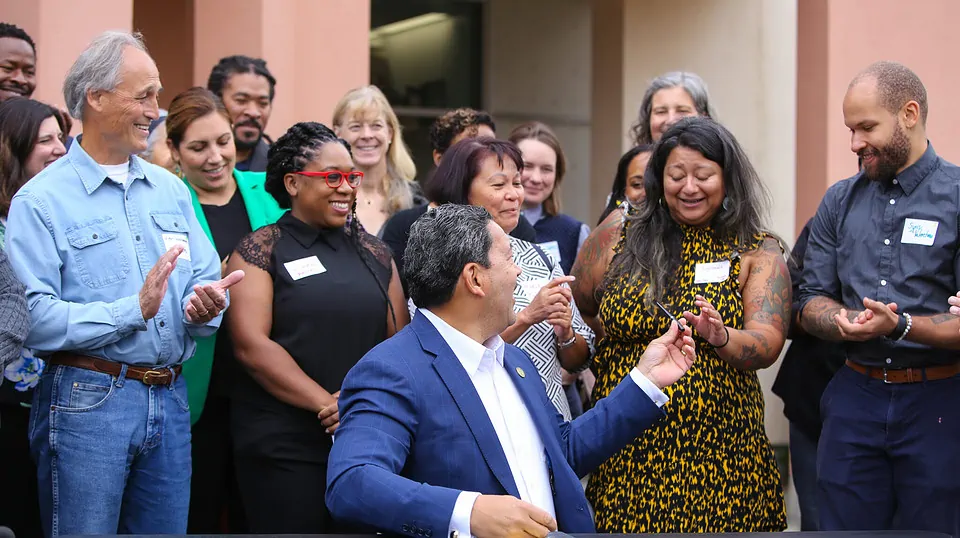
In Seattle, as in many US cities, the climate crisis disproportionately affects neighbourhoods impacted by economic, environmental and racial inequities.
The city’s Green New Deal aims to address the climate crisis and environmental injustice through carbon-pollution reduction and climate adaptation efforts. It also seeks to build an inclusive and equitable low-carbon economy.
An Independent Green New Deal Advisory Body Board, comprised of 19 individuals connected to groups disproportionately affected by climate breakdown, gives recommendations to accelerate climate action. In 2022, the Board recommended US$6.5 million investments to finance initiatives such as converting oil-based heating to electric heat pumps for low-income households. Residents give feedback to the Board on their specific community needs.
Expected 2023 Green New Deal investments range between US$14 million to US$26 million, with funds raised via taxation on big business.
Tokyo and Kuala Lumpur: Green building collaboration
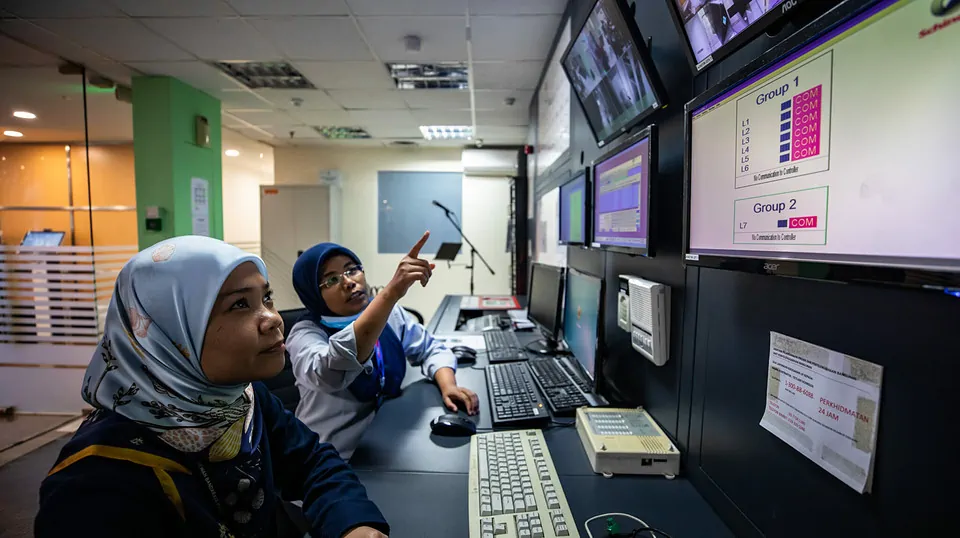
Buildings and construction work are responsible for over a third of the world’s energy consumption. Experts say that the sector needs to be almost net-zero carbon by 2050 to keep global heating under 1.5˚C.
In 2019, Tokyo and Kuala Lumpur established a Global North-Global South climate partnership to decarbonise the building sector.
Tokyo previously made successful steps to reduce emissions from the built environment and shared its learnings with Kuala Lumpur.
The cities developed the Low Carbon Building Standards for facilities owned by Kuala Lumpur. Kuala Lumpur has already started renovations at four buildings based on a five-year renovation plan. An energy-related database for Kuala Lumpur’s 1,955 facilities has also been developed, becoming the basis for implementing Low Carbon Building Standards.
C40 said: “In a world where true and equitable Global North-Global South partnerships are rare, this collaboration is a trailblazing model for other cities to emulate across multiple sectors.”
The awards are now in their eighth edition and finalists were selected by Nordic Sustainability, which evaluated applications against six criteria: immediate climate impact, expected climate impact, wider benefits, innovation, collaboration, as well as sharing and scaling. Climate experts from C40 and the Global Covenant of Mayors for Climate & Energy then assessed a shortlist of candidates and selected the finalists. The ten winners were chosen by a jury.


